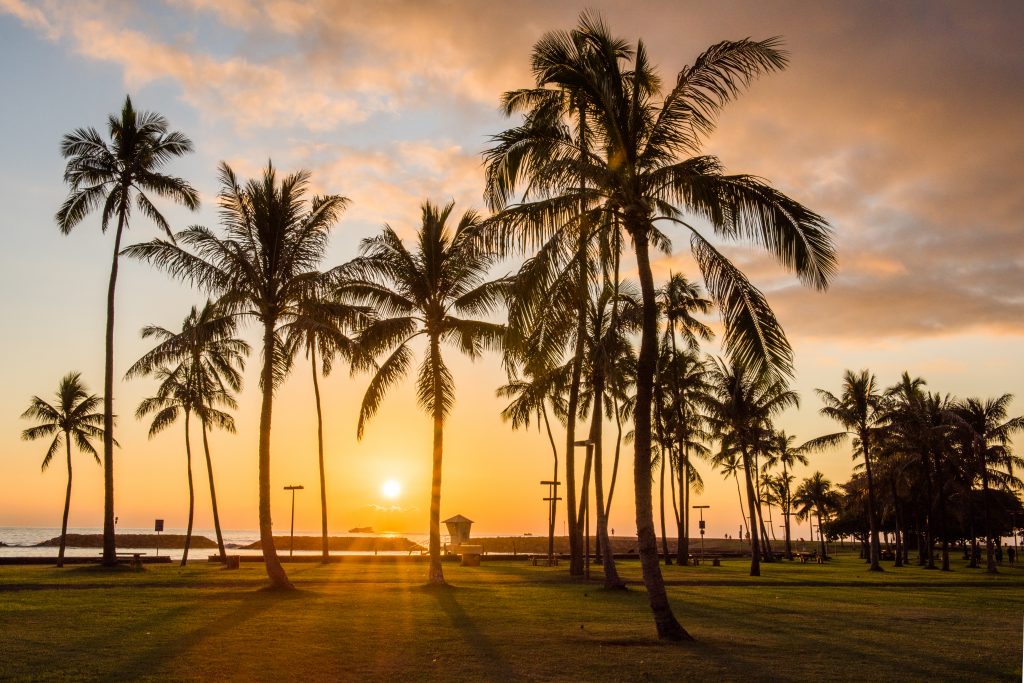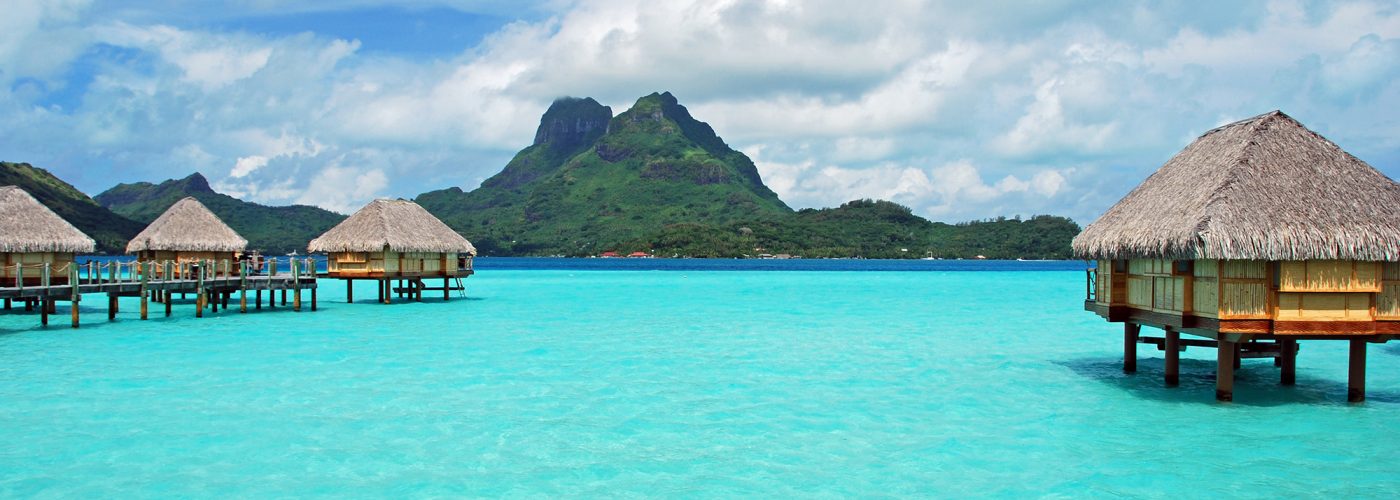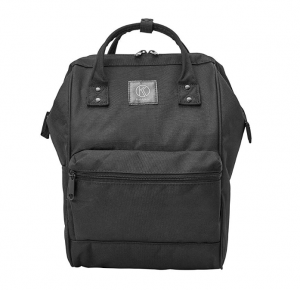Bora Bora is undeniably among the world’s most beautiful places. One of the 118 islands of French Polynesia, surrounded by thousands of miles of Pacific Ocean, it’s a favorite honeymoon spot and a popular retreat for celebrities with its teeming reefs, translucent waters, pristine beaches, warm hospitality, and rich culture, all in vivid color. This resplendent beauty has understandably drawn the biggest names in luxury resorts: Four Seasons, Conrad, InterContinental, St. Regis, Le Meridien, and so on.
But how safe is Bora Bora? Are there any travel warnings that must be heeded when planning a trip to this tiny island, which measures only 15 square miles? For as memorable and romantic as a trip here can be, it’s worth keeping in mind that, even in a paradise like Bora Bora, there are still some dangers to be aware of before you go.
Tips for Staying Safe in Bora Bora
- Even though Bora Bora is an exceptionally safe place for travelers to visit, there may be a small risk of petty crime, so you’ll want to protect and conceal your valuables.
- In Bora Bora, take all the precautions you’d take when traveling to any tropical island—use plenty of sunscreen, stay hydrated, read up on what to do in case of a hurricane or tsunami, watch for falling coconuts, and, if you’re planning to go scuba diving, beware of decompression sickness.
- There are many sharks in Bora Bora, although attacks on humans are rare. Still, it’s best to steer clear of them, as well as Bora Bora’s stingrays and barracudas. Wear reliable foot protection whenever you’re in the ocean to fend off injuries from stonefish, urchins, and the coral itself. Mosquitos are rampant in Bora Bora too, so wearing repellent is vital—and make sure that you’re properly vaccinated before traveling.
Safe Places—and Places to Avoid—in Bora Bora
Before discussing the island’s safe and dangerous places, it’s worth answering one common question: “Where is Bora Bora?” The answer is that it’s in the middle of the South Pacific Ocean, part of the Society Islands archipelago of French Polynesia. It’s less than an hour’s flight from Papeete, Tahiti.
This secluded South Pacific location does afford Bora Bora a good amount of safety, a minimal amount of crime, and plenty of hired security surrounding the posh resorts. By all accounts, almost everywhere in Bora Bora is safe. There are no real neighborhoods on the tiny island, just fancy vacation spots and small villages where the locals live—which is to say, there really isn’t anywhere that travelers should make a special effort to avoid. The U.S. State Department gives French Polynesia its safest travel advisory level (Level 1), advising travelers to “exercise normal precautions” and noting that the country has “a low crime rate.”
Bora Bora’s main port, and its capital, is Vaitape; there, you’ll find shops, hotels, beachfront eateries, and the free airport ferry’s drop-off point—but not much of a crowd. Still, petty crimes do occur here from time to time, and it’s always smart, wherever you’re anywhere that’s popular with travelers, to beware of pickpockets and petty thieves; keep valuables concealed in a money belt under your clothes or in an anti-theft purse or backpack.
Top Travel Safety Products for Bora Bora
Staying Safe in Bora Bora
If you’re planning a trip to Bora Bora, safety might be foremost on your mind, simply because it’s a fairly remote destination with a culture that’s all its own. Rest assured that, as mentioned before, Bora Bora is an extremely safe place. There are only a few things to keep in mind when it comes to Bora Bora safety.
First among those is driving, which can feel iffy, given that roads are narrow, potholes aren’t quickly fixed, and streets can flood during the rainy season, which runs from November through April. Public transportation here is all but nonexistent, save for the free ferry from the airport, a few taxis, and “Le Truck,” which runs along Bora Bora’s main road—there’s not much published information about its safety record. However, many locals and travelers ride bicycles around the island—cycling is not just the safest form of transport here, but also the most enjoyable; it’s hard to beat the fresh ocean breezes and the surreal views while wheeling around.
In Bora Bora, natural disasters are of moderate concern, particularly tsunamis. The island’s location in the middle of the Pacific Ocean leaves it vulnerable to tidal waves whenever there’s an earthquake in places as far away as Samoa or even Chile. Should you hear of a tsunami warning while you’re visiting Bora Bora, move quickly away from the beach and seek higher ground. Other occasional natural disasters in Bora Bora can include cyclones and hurricanes. As for manmade disasters, it’s comforting to know that there has never been a terror attack in French Polynesia.
If you’re planning on going scuba diving—a very popular way to spend time in Bora Bora—take precautions against decompression sickness (also called “the bends”), a dangerous condition that affects a diver’s body when it goes too deep, stays down too long, ascends too quickly, or takes an airplane flight too soon after diving, causing nitrogen bubbles in the blood. If you’ve gone scuba diving and feel any of the telltale symptoms afterward—joint pain, weakness, fatigue, vertigo, itching, tingling, numbness, shortness of breath—seek medical care immediately.
If you’re planning on going diving diving—as in head-first into the water—be absolutely certain that the water you’re diving into is deep enough to accommodate your jump. Sadly, there has been at least one case of severe spinal cord injury in Bora Bora from diving into water that looked a lot deeper than it was.
Keep in mind, too, that Bora Bora can get quite hot, so pack in a way that will let you regulate your body temperature; think loose, light-colored clothing. Slather sunscreen on anytime you’re planning to be outdoors—severe sunburn is no fun, especially while you’re trying to enjoy an expensive vacation. (Consider using a reef-safe sunblock to help protect Bora Bora’s fragile coral systems.) Stay well hydrated to prevent heat stroke and exhaustion, but beware of untreated tap water—the water served at resort restaurants is generally safe, though elsewhere, it’s wise to stick to bottled water.
Before you travel, make sure that you get properly vaccinated; the Centers for Disease Control and Prevention (CDC) recommends that most travelers be immunized against Hepatitis A and typhoid.
Finally, and this sounds wacky, but on any tropical island, there’s a remote risk of getting struck on the head by a falling coconut, causing brain injury or death. This is extremely rare but it does happen, and it’s worth being aware of, especially if you’re scouting a shady spot for a nap on the beach. Avoid hammocks strung between laden trees, or using a fertile palm as your backrest. A common (but unproven) saying in the Pacific Isles is that more people are killed by falling coconuts than by sharks.
Sharks in Bora Bora and Other Wildlife Dangers
Speaking of which, there are indeed many sharks in Bora Bora—the island is surrounded by barrier reef, after all. There’s also a plethora of other wild marine life, including stingrays and barracudas, both of which should be given a wide berth.
Rest assured, however, that shark attacks in Bora Bora are exceedingly rare—there have been just two recorded in the last century. The most recent, in 2015, was a nonfatal incident in Bora Bora’s Anau lagoon—a blacktip shark bit a nine-year-old’s hand while the boy was trying to feed the animal.
Other marine life to take into consideration while you’re in Bora Bora include the coral itself, as well as sea urchins, both of which can result in nasty puncture wounds, so make sure to wear protective water shoes whenever you’re in the ocean. Don’t pick up cone shells, as they may be poisonous, advises Lonely Planet. Also of concern is the well-hidden stonefish, which can look just like a rock, but will inject poison when stepped on. If you suspect you’ve been stung by a stonefish, seek medical care and apply heat immediately. Again, wearing foot protection in the water is the best prevention here.
Finally, there are plenty of mosquitoes in Bora Bora, so protect yourself with an effective repellent. Mosquitoes here can transmit dengue fever, chikungunya, and other maladies.
More from SmarterTravel:
- 10 Epic South Pacific Adventures for Your Bucket List
- 10 Amazing Overwater Bungalows You Can Sleep In
- Where to Stay in French Polynesia: Lodging Tips You Need to Know
—original reporting by Avital Andrews
We hand-pick everything we recommend and select items through testing and reviews. Some products are sent to us free of charge with no incentive to offer a favorable review. We offer our unbiased opinions and do not accept compensation to review products. All items are in stock and prices are accurate at the time of publication. If you buy something through our links, we may earn a commission.
Related
Top Fares From
Today's Top Travel Deals
Brought to you by ShermansTravel
Shop and Save with Country Inns...
Patricia Magaña
 Hotel & Lodging Deals
Hotel & Lodging Deals
$229 -- Chicago: Discounted Rates and...
Francesca Miele
 Hotel & Lodging Deals
$229+
Hotel & Lodging Deals
$229+
$188 -- Honolulu: Save on Oceanview...
Abigail Lamay
 Hotel & Lodging Deals
$188+
Hotel & Lodging Deals
$188+







